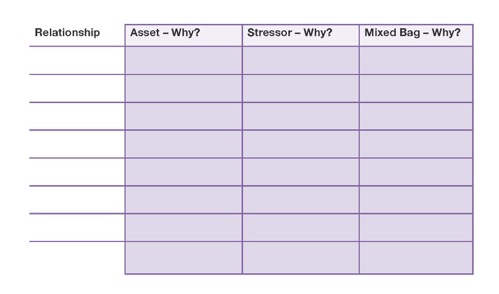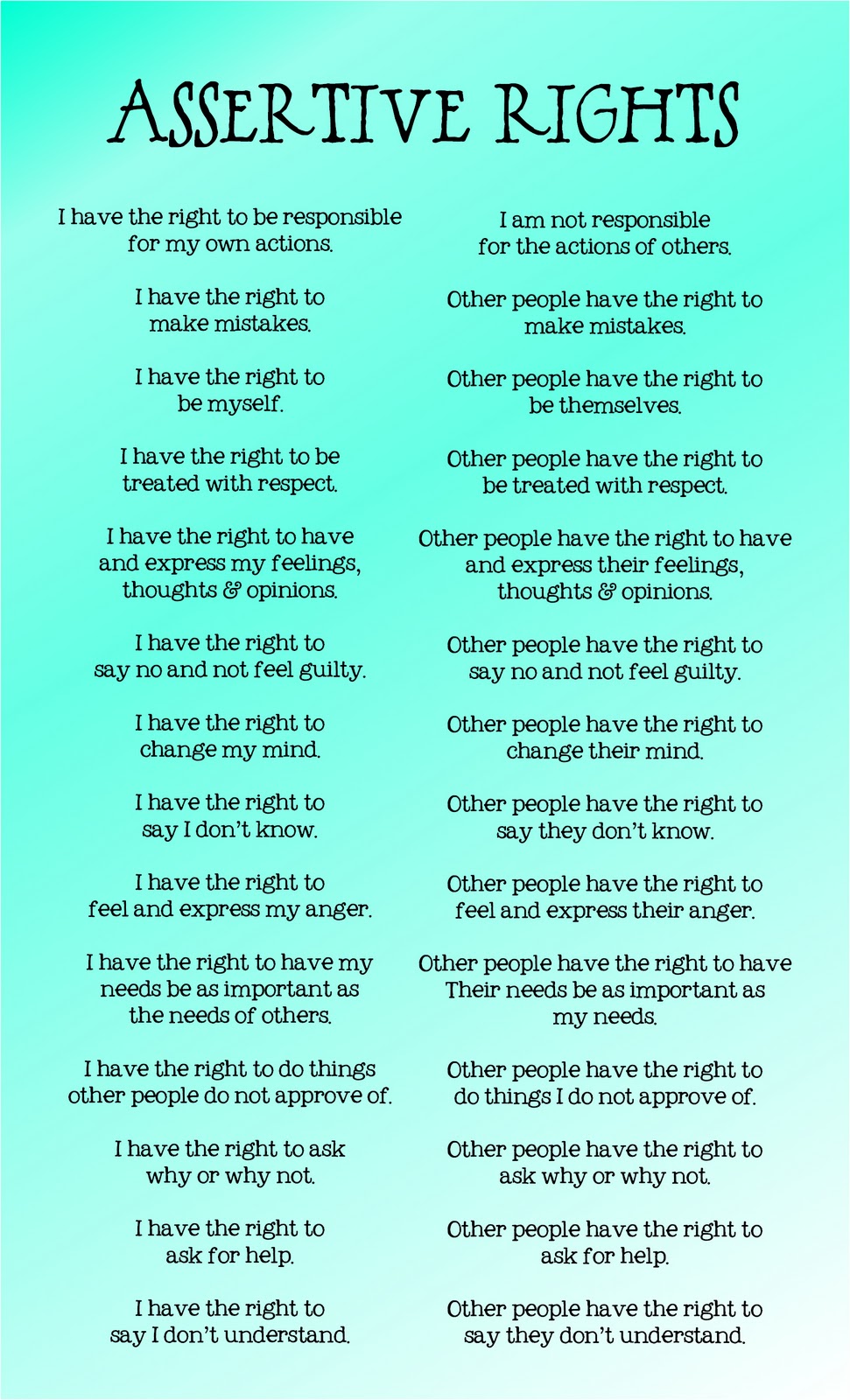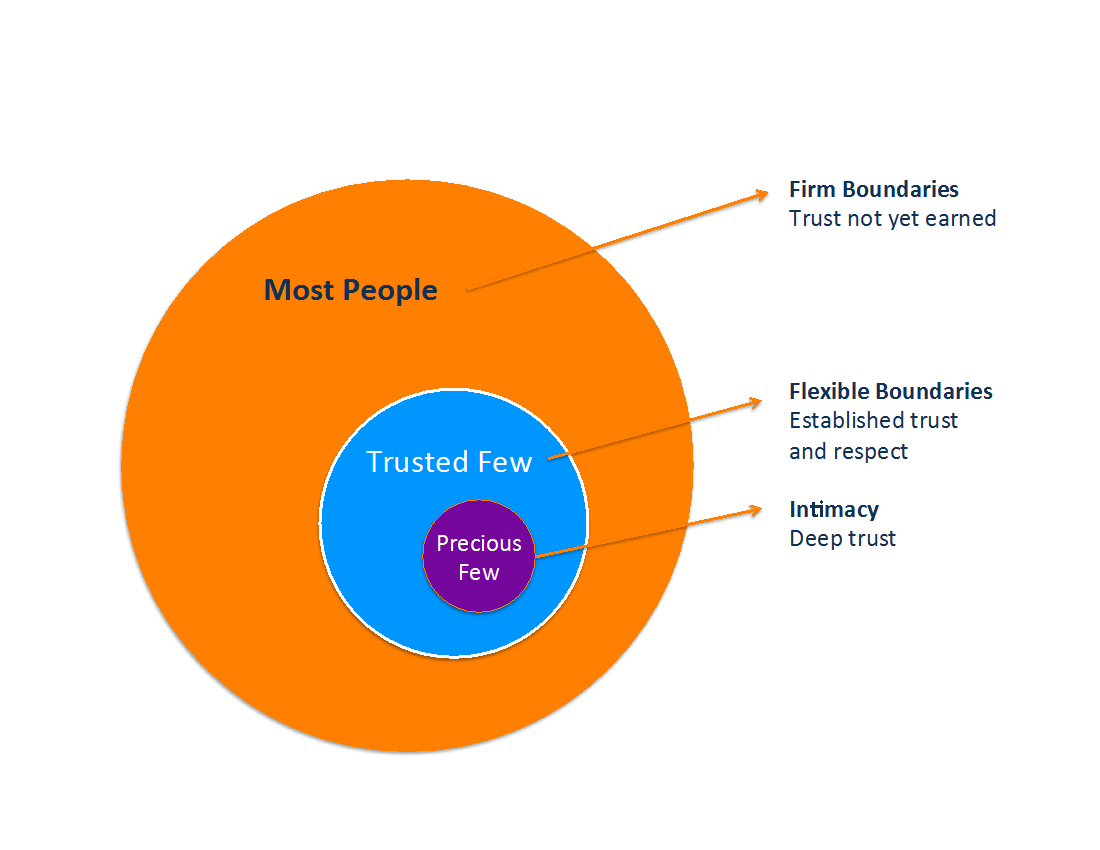

Bettering Your Relationships
Improving Romantic Relationships
Communicating Respect
Expanding Your Social Circle
Connecting with Trusted Adults
Bettering Your Relationships
Some relationships provide us with nurturance, support, resources, friendship, mentoring, and love—these people encourage us to be healthy and to honor ourselves. They are assets in our lives. Other relationships elicit stress, conflict, jealousy, mean or abusive comments, or even physical or sexual violence. Sometimes we find ourselves in relationships with people who are “mixed bags”—they are positive, giving us support and encouragement, but also introduce us to negative habits or lifestyles.
Consider the relationships that are most important in your life. What category would you put each of them in and why?

Think About It:
- How can you strengthen and nurture positive relationships in your life?
- Do you know how to reduce the stress of beneficial but difficult relationships?
- Are there relationships that just aren’t healthy for you?
Talk to your social worker, therapist, CASA volunteer or other trusted adult about your answers to these questions!
Adapted from Relationships: Assets or Stressors? © 2012 Dustianne North. Published in Healthy Transitions Curriculum,Youth Workbook, by the Foundation for California Community Colleges, pp. 40-41.
Establishing Healthy Boundaries
Our personal boundaries define what we are okay with. A person with healthy boundaries can say “no” to others when they want to, but they are also comfortable opening themselves up to intimacy and close relationships. A person who always keeps others at a distance (whether emotionally, physically, or otherwise) is said to have rigid boundaries while someone who tends to get too involved with others is said to have porous boundaries.
Depending on your personal history, you may be good at setting boundaries with some people in your life, but not others. You may also find it easier to set limits in some aspects of your life more than others. Types of boundaries include:
- Physical Boundaries – limits on personal space and physical touch
- Intellectual Boundaries – limits on sharing of thoughts and opinions
- Emotional Boundaries – limits on sharing of personal information and feelings
- Sexual Boundaries – limits on sexual intimacy and desired contact
- Material Boundaries – limits on lending money and personal possessions
- Time Boundaries – limits on sharing time with others
It is your right to decide what you will and will not accept as a condition of being in any given relationship. The other person has this same right. It is important to remember that every person has the following “Assertive Rights.”

Boundaries and Trust Levels
Firm boundaries are needed with people who have not yet earned your trust. As you get to know someone better, your boundaries may gradually become more flexible. If you often find yourself feeling angry, stressed or drained when you are around someone, you probably need to set (or reset) stronger boundaries.
Boundaries and Circles of Trust
 Adapted with permission from materials developed by Jim Yonashiro
Adapted with permission from materials developed by Jim Yonashiro
What Are Personal Boundaries?
This handout that will help you explore what healthy boundaries look like, and give you some examples of boundary violations in various six areas described above.
Who Do You Struggle to Set Healthy Boundaries With?
Think about a person, or a group of people, with whom you struggle to set healthy boundaries. Are there certain types of boundaries you struggle with? This worksheet may help you think through what the issues are for you. You might want to ask your social worker, therapist or another trusted adult to work with you on this and help you come up with strategies for setting boundaries with this person.
Assessing Trustworthiness
Healthy boundaries are based on trustworthiness. Your trust level with someone may be very different than someone else’s trust level is with the same person. Only you can decide what is safe for you in any given relationship.
Qualities and Strengths of Trustworthy People
- Communicate their needs, wants and feelings directly
- Make commitments and keep them
- Are willing to have difficult conversations to solve problems
- Are consistent, competent and predictable
- Respect the needs and wants of others
- Speak up when they believe something is wrong
- Are willing to be honest, open and vulnerable
- Take care of their personal responsibilities
- Live according to their goals, values, beliefs and spiritual practices
- Make apologies, can change their behavior, and are able to forgive
Assessing Your Boundaries and Circles of Trust
Try using this tool to help you assess whether you are trusting someone too much, or if you could slowly allow them to get a little closer.
Measuring Trust Violations
If your trust has been seriously violated in the past, especially when you were young or particularly vulnerable, you may have trouble knowing how serious any given trust violation is (or isn’t). This tool is designed to help you distinguish differences in behavior, rank the seriousness of different aspects, and come to a clearer understanding of what boundaries you may need to set.